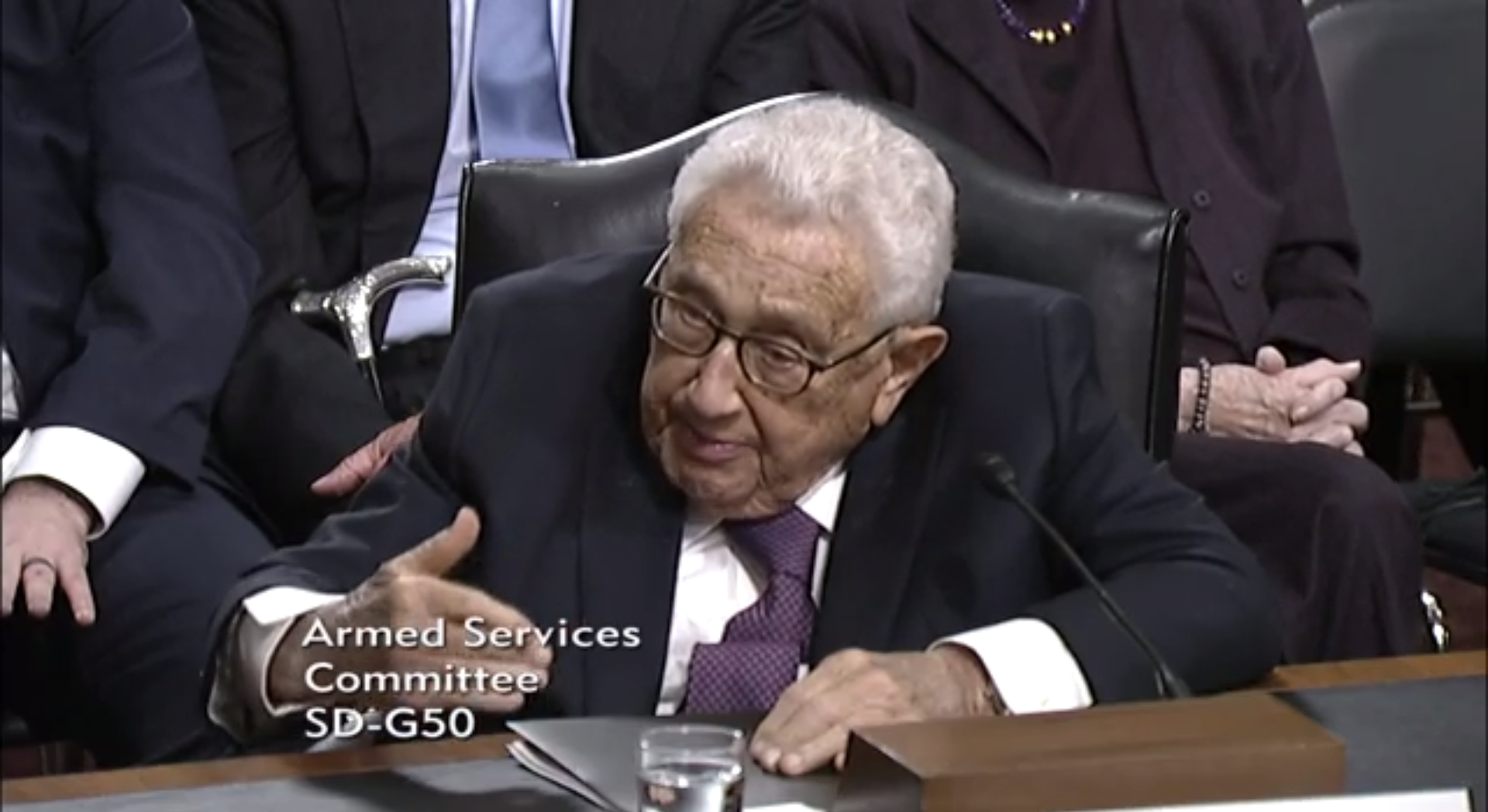
Former Secretary of State Henry Kissinger testifies before the Senate Armed Services Committee on Jan. 25, 2018, where he discussed recently released White House and Pentagon strategies. Screenshot from SASC video.
The Trump administration’s National Security Strategy and the Pentagon’s National Defense Strategy fall short of addressing several major issues facing the US military in a changing world, including global warming and the threat of running the military “ragged,” three former State Department leaders said Thursday.
Former Secretaries of State Henry Kissinger and George Shultz, and former Deputy Secretary of State Richard Armitage told members of the Senate Armed Services Committee the global order is changing and broad, in-depth strategies are needed to address the growing challenges.
“The international situation facing the United States is unprecedented, but it’s occurring,” said Kissinger, who served as Secretary of State under Presidents Richard Nixon and Gerald Ford. “It’s more than a coincidence of individual crises. Rather, it is a systematic, systemic failure of world order, which is gathering momentum.”
The Pentagon’s National Defense Strategy, released last week, doesn’t adequately address issues from global warming and new global weaponry that are a threat to the US global position, said Shultz, who was Secretary of State under President Ronald Reagan. The US government needs to “get our arms around nuclear proliferation,” by getting Russia to “come to its senses” and be an active partner in stopping the threat of nuclear arms, he added.
The NDS needs to better address the fact that the US is losing its edge over other near-peer countries, largely through its own doing, said Armitage, who served in President George W. Bush’s State Department and in the Pentagon under Reagan and President George H.W. Bush. Readiness is declining while troops and equipment are being “run into the ground,” he said.
“The military leadership, the Secretary of Defense, and you all need to think through the problem,” Armitage told the senators. “Are we deploying the people who need to deploy, are week keeping people at home who need to be at home.”

